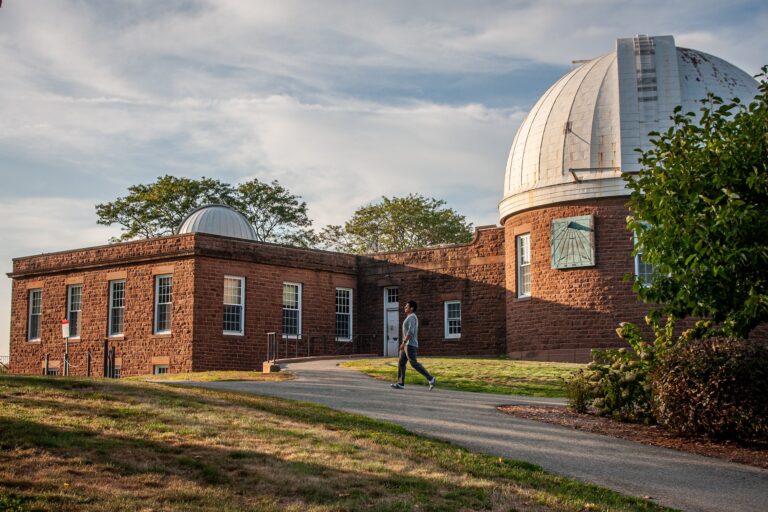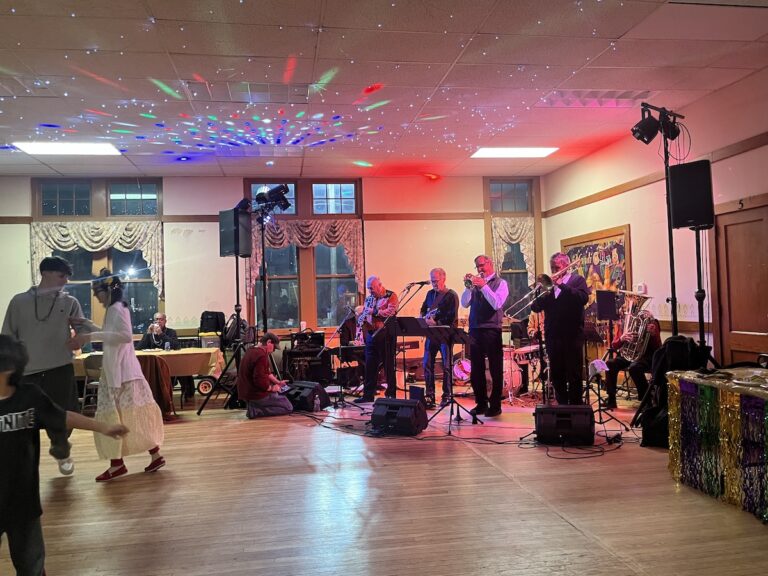Senior thesis spotlight: Tanya Llewellyn, English
Tanya Llewellyn ’08 had not always pictured herself writing a 218-page piece of original historical fiction.
Llewellyn’s inspiration for her creative writing senior thesis evolved from the many English classes she took during her time at the University. She was particularly influenced by a course she took during her junior year: a Center for the Humanities seminar entitled, “Ordering Nature, Humanity, and Deities” taught by Professor of Religion Peter Gottschalk.
“We read a lot of travel writing from the nineteenth century and I became interested in the genre,” she said.
Her recently finished thesis, “The Red Roads of Bekwai,” is about a British woman who moves with her husband, a lieutenant in the army, to Ghana and stays after he dies. The concept of Llewellyn’s thesis combined her growing interest in travel with a fascination with historical fiction.
Llewellyn was inspired to set her story in Ghana in part because of her experiences there during the summer before her senior year. She was able to take the trip as the 2008 winner of the Annie Sonnenblick Writing Award, which provides monetary support for a junior who wants to undertake an independent writing project during the summer between their junior and senior years.
“I did some research while I was abroad [in Ghana] last summer teaching English and working on another writing project about international volunteer organizations and their effect on local communities” she said. “I decided to set my piece there.”
Llewellyn viewed this experience as a vital aspect of her writing process.
“What I needed was to have been there,” she said. “You just have to be in the place. Most details I could have found in books, but for historical fiction you need a vivid sense of place.”
Although her time abroad was incredibly helpful, Llewellyn still felt anxious about writing accurately and believably.
“I was very concerned with the authenticity of what I was writing,” she said. “It was difficult to enter in and represent different points of view. It was hard for me to write all of the different characters.”
The writing process was long and tiring, and Llewellyn said she felt both motivated and frustrated throughout the year.
“My advisor (College of Letters professor, Paula Sharp) really helped me keep going,” Llewellyn said. “I really appreciated her.”
Llewellyn noted that the length of her thesis lent her a greater appreciation for and insight into the writing profession as a whole.
“In the end it didn’t even feel finished,” she said. “I always take on way too much plot. I’ve never written anything that long, and writing this piece has made me imagine how someone could write a book.”
As for what’s next for Llewellyn, she said she’s ready to take a break from writing.
“I’m burned out,” she said. “The pace of writing was very rapid, not a pace at which one would write in the outside world. I’d like to take some time away from writing, at least for a little while.”







Leave a Reply